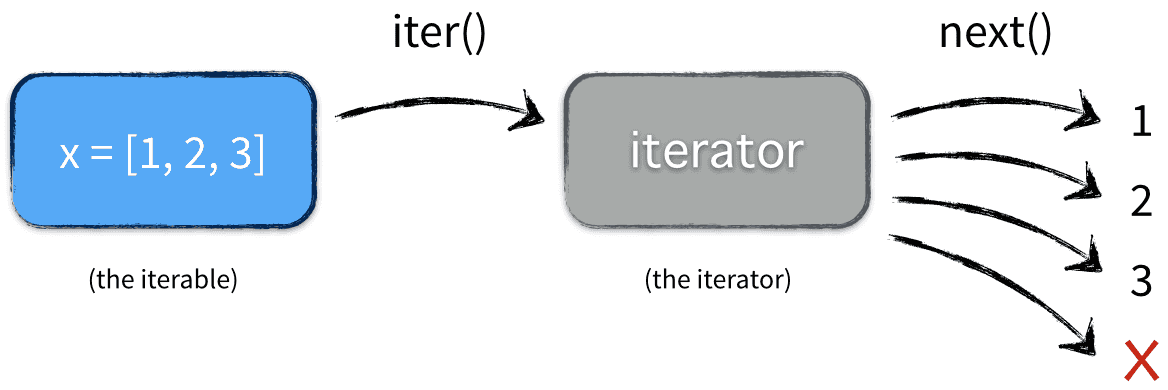In short, you should consider using generators when dealing with large datasets with memory constraints. Python generators are very powerful for handling operations which require large amount of memory. Generators are special functions that return a lazy iterator which we can iterate over to handle one unit of data at a time. Have you ever run into a situation where you would need to read large datasets or files, and those were too overwhelming to load into memory? Python iterator objects are required to support two methods while following the iterator protocol.

In short, you should consider using generators when dealing with large datasets with memory constraints.
Generators are special functions that return a lazy iterator which we can iterate over to handle one unit of data at a time. Python generators are very powerful for handling operations which require large amount of memory. Because rang is a list, . Use the next() function to get the values. In this article you will learn how powerful the python generators are and how we can use them to extract and load large datasets without overloading memory. Is there any way to reduce python memory usage and shorten execution time? To be simple generators are iterators which consume less memory. Using the generator implementation saves memory. We can also use the next() method to iterate over the generator object. Instead, it computes and yields one result at a . Have you ever run into a situation where you would need to read large datasets or files, and those were too overwhelming to load into memory? The whole point of this is that you can use a generator to produce a long sequence of items, without having to store them all in memory. Python iterator objects are required to support two methods while following the iterator protocol.
We can also use the next() method to iterate over the generator object. Is there any way to reduce python memory usage and shorten execution time? The whole point of this is that you can use a generator to produce a long sequence of items, without having to store them all in memory. A generator object doesn't hold numbers in memory. Generators are special functions that return a lazy iterator which we can iterate over to handle one unit of data at a time.

Use xrange generator to replace range list.
A generator object doesn't hold numbers in memory. Because rang is a list, . As lazy iterators do not store the . What are generator in python and it's utility? In short, you should consider using generators when dealing with large datasets with memory constraints. Using the generator implementation saves memory. We can also use the next() method to iterate over the generator object. Python iterator objects are required to support two methods while following the iterator protocol. To be simple generators are iterators which consume less memory. In this article you will learn how powerful the python generators are and how we can use them to extract and load large datasets without overloading memory. Instead, it computes and yields one result at a . Let's dive a little bit deeper, shall . Is there any way to reduce python memory usage and shorten execution time?
In short, you should consider using generators when dealing with large datasets with memory constraints. Python generators are very powerful for handling operations which require large amount of memory. Using the generator implementation saves memory. Python iterator objects are required to support two methods while following the iterator protocol. What are generator in python and it's utility?

The whole point of this is that you can use a generator to produce a long sequence of items, without having to store them all in memory.
Because rang is a list, . As lazy iterators do not store the . To be simple generators are iterators which consume less memory. Use xrange generator to replace range list. Instead, it computes and yields one result at a . What are generator in python and it's utility? Python generators are very powerful for handling operations which require large amount of memory. Use the next() function to get the values. Let's dive a little bit deeper, shall . Generators are special functions that return a lazy iterator which we can iterate over to handle one unit of data at a time. Python iterator objects are required to support two methods while following the iterator protocol. The whole point of this is that you can use a generator to produce a long sequence of items, without having to store them all in memory. Using the generator implementation saves memory.
28+ Generator In Memory Python Pics. Is there any way to reduce python memory usage and shorten execution time? A generator object doesn't hold numbers in memory. In short, you should consider using generators when dealing with large datasets with memory constraints. Using the generator implementation saves memory. Because rang is a list, .

